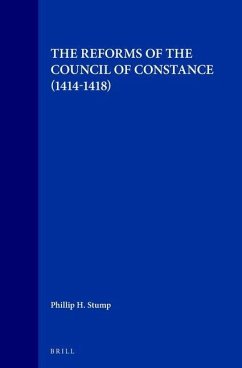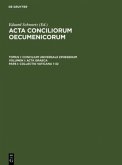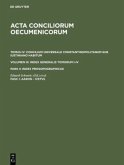The first comprehensive study of the Constance reforms since 1867, this volume offers new explanations for the frequently alleged failures of the reforms, while arguing that the successes were much greater than historians have generally acknowledged. The author analyses the specific reforms in light of the conflicting interests of reformers; then he probes the conceptual basis of the reforms employing methodology developed by Gerhart Ladner. An appendix offers a new edition of the central source for the deliberations -- the records of the Constance reform committee -- using three newly identified manuscripts. The Constance reformers gathered a rich harvest of late medieval institutional reform thought and imagery. Under the central motto of "reform in head and members," they put long-standing conciliar theories into practice, forging a pragmatic synthesis of hierarchy and collegiality.
Hinweis: Dieser Artikel kann nur an eine deutsche Lieferadresse ausgeliefert werden.
Hinweis: Dieser Artikel kann nur an eine deutsche Lieferadresse ausgeliefert werden.








